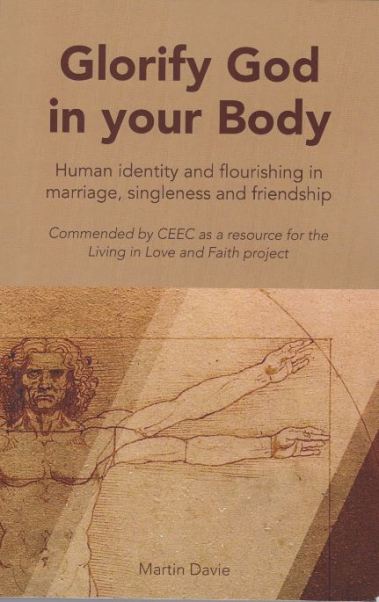
Over the past fifty years or so there has been a marked shift across society in attitudes towards sexuality and marriage. Most couples cohabit now before marriage; marriage between two people of the same sex is now widely accepted and gender is seen as a human construct, constructed by the self. This change in attitudes is being supported by the highest levels of government, and the new relationship material being made compulsory for schools from 2020 will ensure the next generation will be expected to adopt this new permissive view, whatever the long-term consequences may be.
How should the church respond to this shift? Broadly there are those who have to a lesser or greater extent accommodated to the change of societal values, and who are pushing for established denominations to accept the change. Then there are those who hold to the traditional view of Scripture and the witness of 2000 years of church history, and see the church standing firm against these changes, whatever the cost may be. I subscribe to the latter view.
The situation in the Church of England is coming to a head. In various parts of the Anglican Communion the blessing of same-sex relationships has been accepted, for example in the United States and in Scotland, and the Church of England remains in communion with these Anglican churches, rather than those who have sought to remain faithful to the traditional understanding of sexuality. This is one reason behind the emergence of GAFCON, the worldwide fellowship of confessing Anglicans which is providing an alternative communion of Anglican churches across the world, united by their commitment to the Jerusalem declaration.
In time for the Lambeth conference for 2020, the Church of England hopes to complete its Living in Love and Faith (LLF) project. As the official website states: The Living in Love and Faith project is propelled by the Church’s desire to learn how relationships, marriage and sexuality fit within the bigger picture of a humanity that is liberated by Jesus Christ and infused by the Spirit to reflect the image of God in which we are created. There is a fear among traditionalists, however, that the outcome of the project will be to officially sanction a change in the church’s position of human identity, marriage and sexuality. This fear has been reinforced by the publication of a service which takes the affirmation of baptism faith and reinterprets it as an opportunity to some who has transitioned to a new gender to affirm their new identity.
In response to the ongoing LLF process, the theologian Martin Davie was commissioned by the Church of England Evangelical Council (CEEC) to write a book setting out a Biblical understanding of the issues involved. It is a clear, readable work that looks at each topic with clarity and with perception. It sets the whole doctrine of marriage against the context of the coming new creation. It tackles issues such as singleness, premarital sex, gender fluidity, divorce in a readable way. There are three questions at the end of each chapter which are designed to help the reader sum up the points raised by each issue, and a conclusion which by using a question and answer format serve as a very helpful summary of the work.
I would thoroughly recommend this book for anyone who wishes to be faithful to the Bible as the revealed word of God and wants to engage seriously with the deep and very personal issues involved. I have a few minor quibbles:
First of all, it is all very well affirming the importance of marriage but a major pastoral challenge I often face is making marriage accessible and affordable to those who have very little, especially in an area where by and large this institution has disappeared and there are few role models to follow.
I accept the arguments that divorce should be permitted when there has been adultery or desertion by an unbeliever. I also believe divorce should be granted where there is a real history of physical, sexual or emotional abuse, as such abuse runs contrary to complimentary view of marriage envisioned in Genesis 2.
Also the final chapter on birth control and infertility is all too brief and touches on ethical issues that can only be explored in full well beyond the remit of this particular book.
But having said all this, nothing should detract from the very clear and very practical guidance this book gives. Not everyone will agree with every position, but the presentation of every issue and the depth of research behind every argument shows this is a work that needs to be taken seriously, and it is a valuable contribution for a time such as this.
